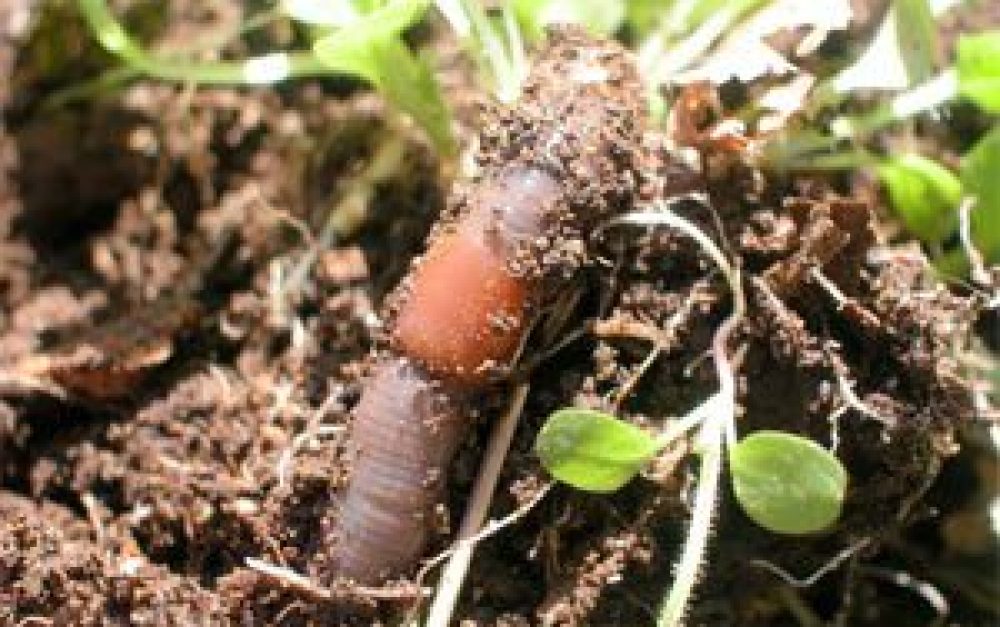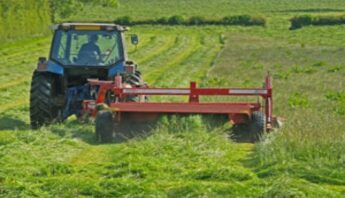Farmers are the stewards of the land; sadly, politics often dictate how they farm. In the coming days, Congress will make decisions on funding priorities for 2012, and dramatic cuts to soil conservation programs are being proposed.
We cannot afford to let this happen. Our nation’s ability to produce adequate healthy food, and to protect vital air and water resources, depend on how we treat the soil. Cutting soil conservation programs now will have devastating consequences long into the future. Call your Congressmember today and let them know healthy soil is well worth the modest investment.
From soil ecology to social justice
Since childhood in a suburb of Cleveland, Ohio, I’ve been fascinated with soil. What’s not to like? Everything terrestrial grows in it, and clearly some soils are much more productive, alive, and healthy than others. Motivated by U.S. farmworker struggles of the 1980s and a desire to put these two interests together, I migrated to graduate work in agricultural ecology.
I spent nearly 10 years in Costa Rica conducting research in soil ecology. This beautiful country is like many others in the developing world, where peasant farmers are relegated to marginal, highly erodible lands to eek out a living.
In the 1930s, soil erosion was considered 'a menace to national welfare'.
The challenges of soil conservation are no less important here at home. The dustbowl disaster of the 1920s and 30s led to establishment of the Soil Conservation Service (predecessor to the Natural Resources Conservation Service) to address the recognition that "soil erosion was a menace to the national welfare."
Fast forward to soil conservation success stories of the 1980s and 90s. Russ Zenner of Idaho farms 3,300 acres of diverse crops, using a range of innovative techniques to keep his soil healthy. Russ explains: “My view is the more [crop] residue we leave in the field, the faster we improve soil quality.” Regarding environmental benefits he adds, “I’m talking about water quality, sedimentation, nutrient management…. In the long run, I don’t think we will have much choice — we will have to make this work.”
Soil health falling victim to politics
Yet now the conservation programs — and the farmers who implement them — are falling victim to politics and pricing wars. Farmers are pressured to clear ever-increasing areas, often marginal erosion-prone land, to plant row crops such as corn (grown primarily for animal feed, processed foods and biofuels).
As described recently in the New York Times, the environmental situation on many U.S. farms does not look good: reduced crop yields and sediment-laden water contaminated with pesticides and fertilizers (the latter responsible for the vast oxygen-depleted “dead zone” in the Gulf of Mexico). On top of all this, the impacts of soil erosion are expected to get even worse with the severe weather events associated with climate change.
Severe weather associated with climate change is expected to intensify the impacts of soil erosion.
Instead of acting to mitigate this ecological disaster-in-progress, Congress voted in mid April to cut $500 million from the remaining 2011 budget of programs that help farmers conserve natural resources. The budget outlook for 2012 is even more grim.
The President‘s 2012 budget proposes an immediate $1 billion cut, and sets the stage for permanent cuts of $5 billion to conservation programs in the 2012 Farm Bill. Programs like the Conservation Stewardship Program, Environmental Quality Incentives Program, and Wetlands Reserve Program will take huge hits.
Your call to Congress is important
Congress is about to make decisions on fiscal year 2012 funding priorities. Your Senators and Representative need to know you care about programs that support healthy soil. Our partners at the National Sustainable Agriculture Campaign outline the dangers of the pending cuts well:
These are false budget savings that endanger the nation’s soil and water as well as our future capacity to produce adequate supplies of healthy food. These resources form the very foundation of our rural economies.
Calling is easy. To find contact information for your Senators and Congressman go to Congress.org and type in your zip code. Click on the legislator’s name and then on the contact tab. You can also call the capital switchboard at (202) 224-3121 and ask to be connected to their office. Ask for her/his aide responsible for agricultural appropriations. If the aide is unavailable leave a voice mail or a message with the receptionist.
The message is simple: Do not cut funds authorized in the 2008 Farm Bill for conservation on farms and ranches. We can’t afford any more cuts to agricultural conservation programs. The long-term costs of unsustainable soil erosion to our economy far outweigh any immediate savings from cutting our modest investments in conservation.
Even if you haven't been fascinated with soil since childhood like me, it's worth taking a stand for. The truth is, we really can't live without it.








